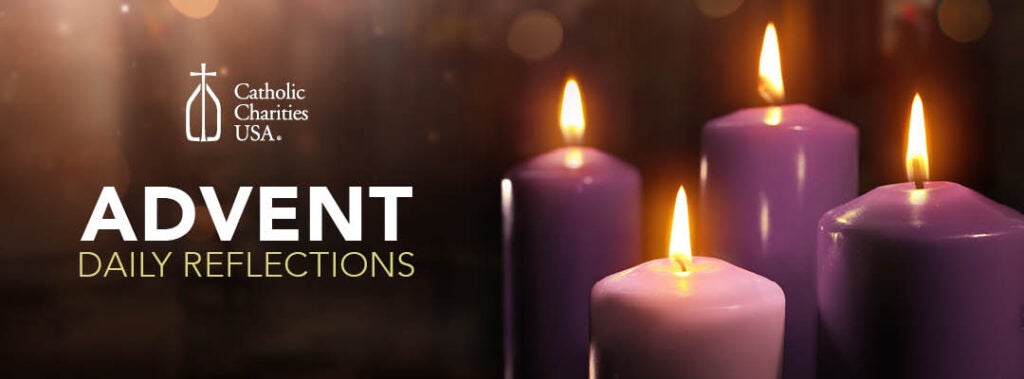Solemnity of the Immaculate Conception

As a young girl growing up, I struggled with Mary’s example of perfection. As a child who was continually navigating right from wrong, understanding “free will” and what it meant for Mary to be born without sin was difficult to comprehend. While there were/are aspects of that gift that I find encouraging, more than anything, I wanted to learn what it meant to say, “Let it be done to me according to your word.” Also, perfection seemed boring, no matter how many times my grandmother tried to tell me I should keep trying.
The “gift” of free will has taken on different meanings through the years. My grandmother taught me how to knit, and I have picked it up at different times. Most recently, my former housemate Jessica in DC encouraged me to pick it back up. If I think of my life as a knitted shawl, the stitches reflect my free will or acknowledge when I have set myself apart from God. The shawl of my life consists of dropped stitches, added stitches, representing a perfect specimen to unravel and start again.
Today’s first reading is an invitation to examine our understanding of original sin and how even when humanity makes wrong decisions and is close to unraveling, we are encouraged to always remember how close God desires to be with us. We can and should take time to reflect on our decisions, and the harm our decisions cause others. Adam and Eve wanted to “be perfect,” hence why they ate the apple. Both quickly desired to be covered and not naked. Their decision to not listen to God was revealed, and humanity has been working to “pick up the stitches” ever since.
This time in Advent whispers in our hearts that we can “reset” or “turn” again in our life, to fix the stitches. We have a beautiful opportunity to convert or make new (metanoia in Greek). To make new is not to seek perfection. We are fully human and are called to live in right relationship with God which we do through the call and answer of justice and charity. As a universal Church, we “reset” by spending the days and weeks of Advent re-reading our early origin stories and re-learning what it means to be in right relationship with God.
We read and encounter the stories as reminders to one another. Even with the consequences of our actions, God never stops loving us, even in our full expression of humanity. The challenge for all in these moments of metanoia is to remember that God loves us all! Even the politicians, or the people who make life hard, people who have devastated entire communities and nations. May we continue to pick up stiches, rework the shawl of our own lives in the metanoia moments of Advent.
Genevieve Mougey is Executive Director of Catholic Charities of Wyoming.